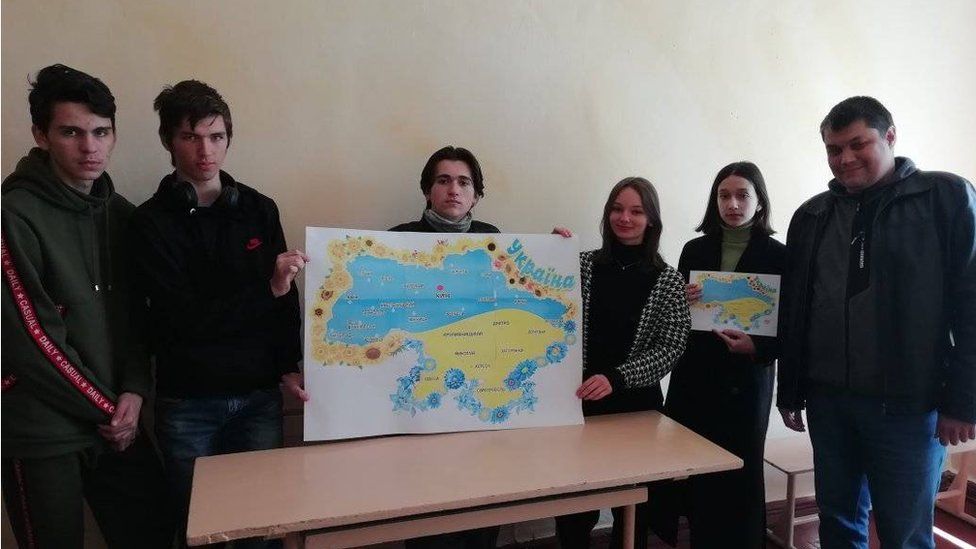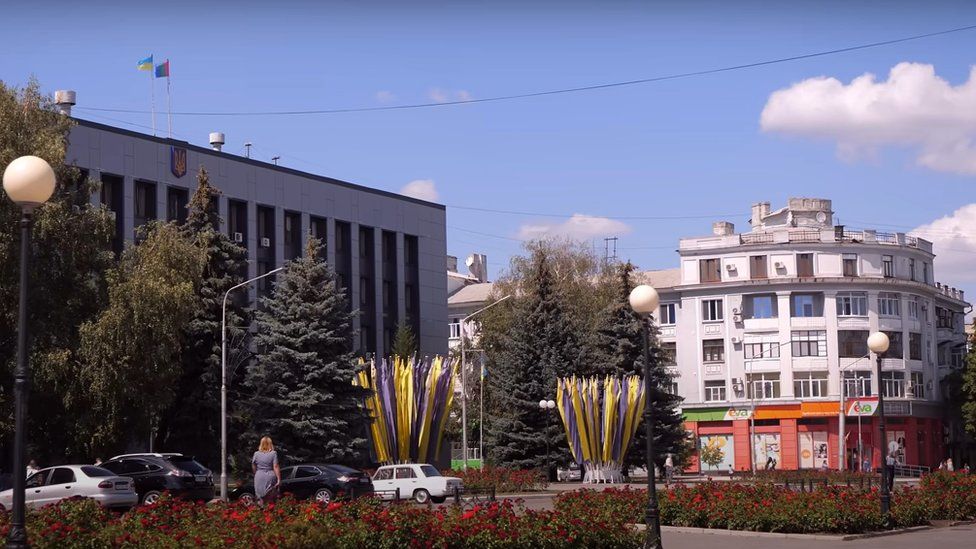The town of Bakhmut in eastern Ukraine is now renowned throughout the world as the scene of the bloodiest and possibly longest battle in Russia's war against Ukraine.
Almost all of its ruins are now under Russian control, and it has been nearly completely destroyed.
Almost all of the residents have since moved out, but those who have been reached by the BBC describe Bakhmut before the war as being cozy, well-kept, and green.
Additionally, they talk highly of the salt and sparkling wine that made the town famous.
The city was well-known for its sparkling wine outside of Ukraine. The neighborhood winery was one of the biggest and best producers of the fizzy drink in the USSR and later in independent Ukraine. It was established in a sizable abandoned gypsum mine in the 1950s. Its location, roughly 70 meters underground, made it simpler to reach the ideal temperature for the drink's fermentation.
It is currently owned by a business called ArtWinery, and Oleksandra Cherednychenko, the company's director of marketing, spoke to the BBC about her first trip to the extensive caves.
It was an incredible feeling. It is an underground city so large that people used buggies and lorries to transport goods and people inside of it. You couldn't see the end of the seemingly endless rows of bottles.

"Classical music was playing inside, and the walls were decorated in yellow, green, and red. It held my attention. Underground wine testing is the best.
"It had a soul, and it is one of the principal symbols of Bakhmut. There was a nice garden with peacocks and a vineyard that the company's employees had planted right next to the main office, Oleksandra said.
In the Soviet Union, sparkling wine from Bakhmut was a long-time favorite for special occasions like weddings and New Year's Eve.
When Russia invaded Ukraine on February 24, 2022, the winery's operations were put on hold, and the majority of its staff were evacuated from Bakhmut.
Yevgeny Prigozhin, the leader of the Wagner mercenary group, claimed in May 2023 that all of the winery's structures had been destroyed. In Bakhmut, Wagner has been at the forefront of Russian forces battling Ukrainian soldiers.
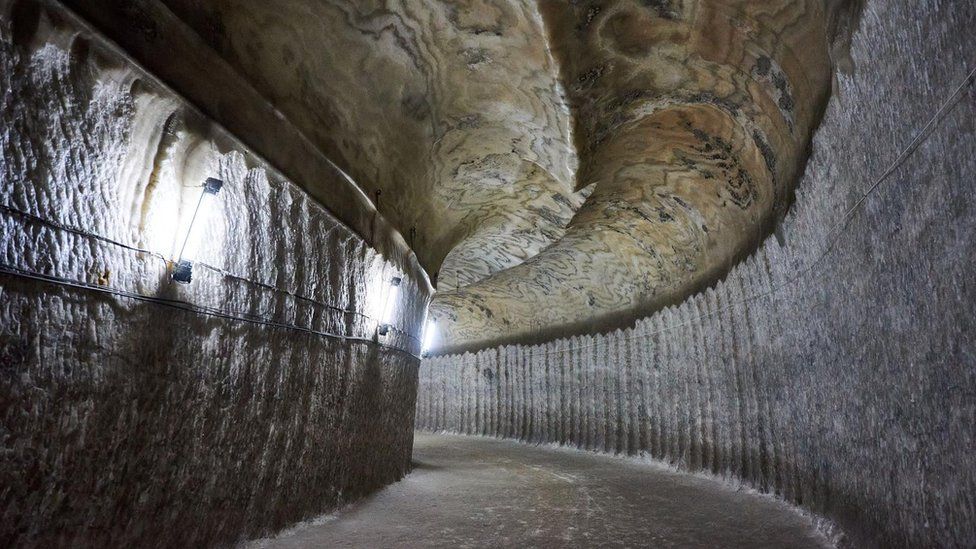
Another item that has helped Bakhmut gain popularity in Ukraine and elsewhere is salt. Before the war, Artemsil, a salt mining company, produced more than 7 million tonnes of salt annually and exported it to 22 nations, from Denmark to Armenia.
"Working for this prestigious company was an honor. People were surprised that I was hired there without having powerful friends in high places, according to Anzhelika, who spent nearly 20 years working for Artemsil. It was the happiest time of my life, and we felt safe. ".
Everything was altered by war.
Anzhelika related a tale involving two former coworkers who had a lab right next to her workplace. "One died in January after a missile struck her home. Actually, it happened the day of her birthday. The other has already begun to suffocate on alcohol. It might be the helplessness or the stress of it all, she suggested.
Bakhmut was a lovely, well-maintained city in Anzhelika's memory.
In order to show those who left Ukraine what they were missing, our government made the decision to showcase such frontline cities. Over the years, Bakhmut has incurred significant financial costs, she claimed.
Similar recollections of the city exist for Natalya Putrya, a piano instructor at the Culture and Arts College in Bakhmut.
It was stunningly lovely. For Europe, it may not be a big deal, but it was unusual for us that the local government maintained the roads and sidewalks well. They lavishly renovated our college in addition to constructing a fantastic stadium. The purchase of brand-new, excellent musical instruments, she said.
Her college regularly held free public concerts to celebrate holidays like St. Valentine's Day and New Year's Eve, as well as hosting piano competitions for the entire country of Ukraine. "Culture and art are essential to life. Natalya remarked that Bakhmut "was always interested in culture.
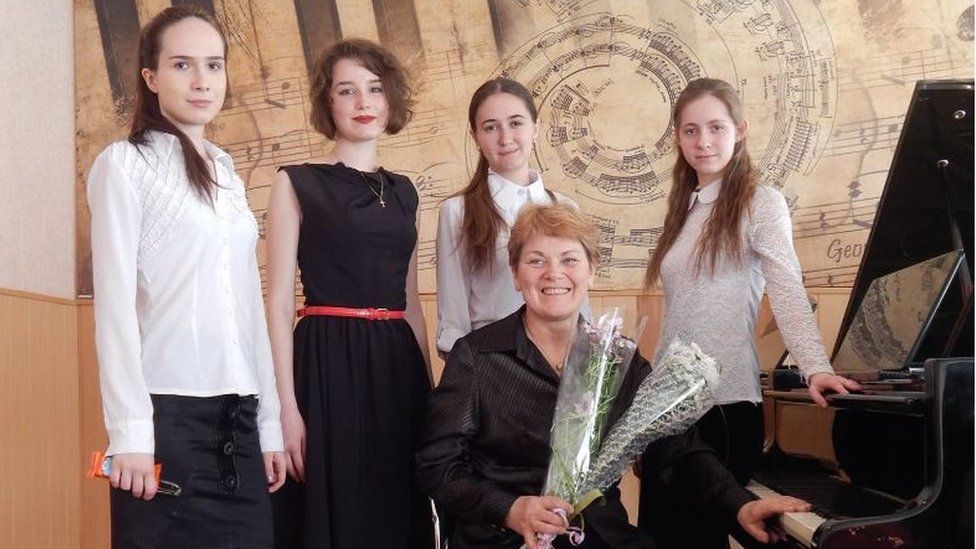
Oleksandra, one of her students, has happy memories of the college in Bakhmut.
"We arrived there at dawn and left for home at dusk. When the night watchman would tell us to leave the college at nine o'clock at night, I recall that everything felt perfect as we drove home. The moment and location were ideal. We called it home. ".
The night before Russia's complete invasion last year is still fresh in Oleksandra's mind.
"On February 23rd, we held a sizable concert, and I recall the stunning sunset that evening. I was on my way home when I noticed the stars and the sky. The stars that night were absolutely incredible, and I wondered how long the peaceful sky above would last. We were awakened the following morning by people shouting that war had broken out and that our cities were being bombed. ".
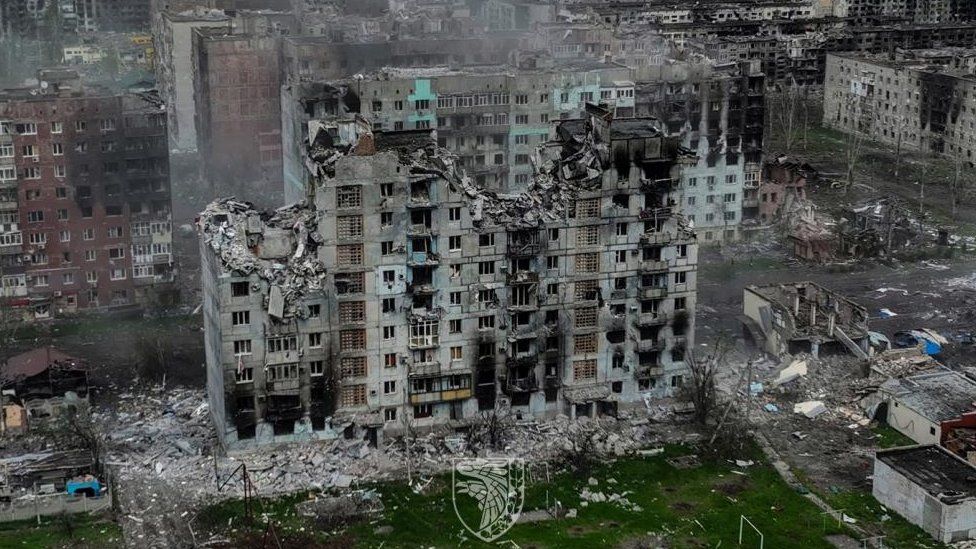
Oleksandra expressed to me how heartbroken she was to witness fighting harming her college.
"I cried as I looked at pictures of our concert hall after it had been damaged, where our prized grand piano had been. To perform it on stage was every pianist's fantasy. When we discovered that all the windows had been broken, we realized our pianos were doomed. The damp will cause all the strings to rust, she warns.
The college relocated to the western Ukrainian city of Kamyanets-Podilsky after the war began.
This completely altered the dynamic of our relationship with teachers, according to Oleksandra. "Now that we have all lost our homes, we are all one big family. Together, we have experienced everything. We are receiving invaluable support from one another. ".
Yes, we're family, says her teacher Natalya. We hang out frequently and get together after work for a cup of coffee or just to chat in a cafe. We must have brought warmth from Bakhmut because this is the case. It's difficult to live without a place to call home, so we're working hard to preserve it. ".
Natalya has only one dream, though: she wants to go back to her native eastern Ukraine, even if it's not Bakhmut. This is in spite of the tragedy of Bakhmut's destruction.
